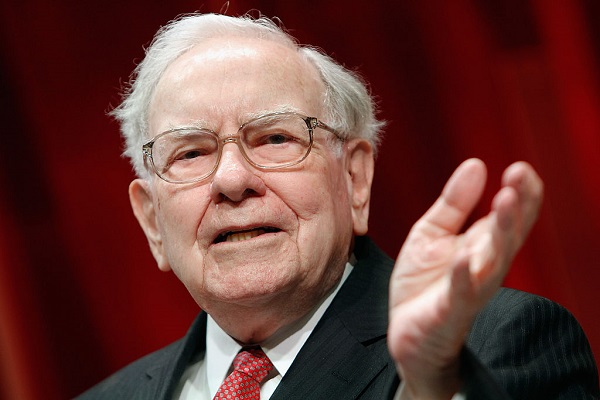Three reasons why this fund boss has sold Warren Buffett’s firm
Berkshire Hathaway had been held since the aftermath of the financial crisis.
25th November 2021 11:19
by Kyle Caldwell from interactive investor
Berkshire Hathaway had been held since the aftermath of the financial crisis.

Sebastian Lyon, founder and chief executive officer of Troy Asset Management and manager of the Personal Assets Trust (LSE:PNL), has sold out of Berkshire Hathaway (NYSE:BRK.A).
Warren Buffett’s conglomerate had been held in the investment trust since the aftermath of the financial crisis.
In Personal Assets’ half-year report, Lyon explained that Berkshire Hathaway had been a strong contributor to performance over both the long term and the past year. But looking ahead, the fund boss has concerns over “several risks which we do not believe are adequately discounted”.
Lyon added: “The most prominent is key-man risk which is well known but rises as each year passes - Warren Buffett just celebrated his 91st birthday.
“Coupled with this has been disappointing recent capital allocation by Berkshire, evident particularly in the decision to purchase airlines, something Buffett has long warned against, followed by their untimely sale.”
- Warren Buffett's Berkshire Hathaway builds record cash pile
- Terry Smith on Warren Buffett and how to find good companies
- Funds Fan: Junior ISA ideas, dividend delight and small-cap expert
A third risk highlighted by Lyon is that Berkshire Hathaway is potentially behind the curve on environmental, social and governance (ESG) standards. Earlier this year, the board fended off a shareholder resolution that called for annual reports on how its subsidiary companies are responding to climate change.
Buffett, one of the world’s biggest philanthropists, told investors during Berkshire Hathaway’s annual shareholder meeting that it would be ‘asinine’ to compile a single climate change report, due to the small size of many of the subsidiary companies.
Lyon comments: “The company’s refusal to hold its subsidiary businesses to a higher level of account when it comes to climate disclosures is reflective of a management team that is yet to fully grasp the ESG nettle. This is likely to impact returns in the years to come.”
Over the six months to the end of October, Personal Asset Trust’s net asset value return (the performance of underlying investments) rose by 5.3%. The share price gain was 4.7%.
The trust is one of a small number of “wealth preservation” investment trusts, which prioritise protecting investor capital. The other three trusts that meet this description are Capital Gearing (LSE:CGT), RIT Capital Partners (LSE:RCP), and Ruffer Investment Company (LSE:RICA). Each has a low weighting to equities and plenty of defensive armoury, such as low-risk inflation-linked bonds and a small weighting to gold.
- A guide on how investors can protect against inflation
- Get £100 cashback when you switch to an ii ISA in November. Terms apply
- How fund investors can protect and profit from higher interest rates
Looking ahead, Lyon cautioned “investors may be in for greater volatility” with inflation levels on the rise, which could force central bankers to increase interest rates from their historical lows.
He said: “Equities have been supported by four decades of falling interest rates. Should this dynamic change, investors may be in for greater volatility as the support from low rates is questioned. This raises uncertainty over the value of the expected growth in earnings from equities, which becomes less precious when eroded by inflation.
“A battle lies ahead between the ‘inflation-protecting’ qualities of stocks and the threat of nominal interest rate rises in the future.
“We consider these risks when structuring the trust’s portfolio. Gold bullion and inflation-protected securities provide a foil for our equity exposure, which in turn is focused on durable, profitable companies that continue to grow and have pricing power.”
These articles are provided for information purposes only. Occasionally, an opinion about whether to buy or sell a specific investment may be provided by third parties. The content is not intended to be a personal recommendation to buy or sell any financial instrument or product, or to adopt any investment strategy as it is not provided based on an assessment of your investing knowledge and experience, your financial situation or your investment objectives. The value of your investments, and the income derived from them, may go down as well as up. You may not get back all the money that you invest. The investments referred to in this article may not be suitable for all investors, and if in doubt, an investor should seek advice from a qualified investment adviser.
Full performance can be found on the company or index summary page on the interactive investor website. Simply click on the company's or index name highlighted in the article.